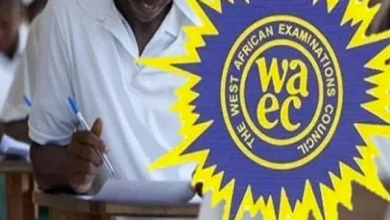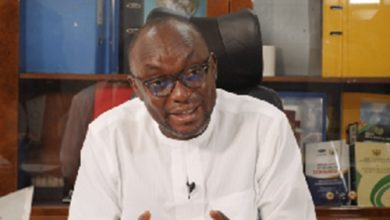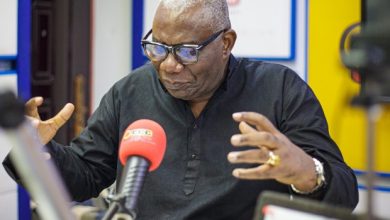
- The 2021 Budget and Economic Policy Statement was read in Parliament on Friday, 12th March 2021.
- The statement seeks to blame COVID-19 for the abysmal performance of the economy in the 2020 fiscal year in particular. We are of the firm believe that mismanagement and uncontrolled expenditure and sheer lack of prudence accounted for the poor performance of the economy and not just COVID-19.
- The budget statement seeks to introduce a number of new taxes such as:
a. COVID-19 Health Levy
- 1% increase in NHIS levy
- 1% increase in VAT flat rate
b. Betting and gaming levy
c. Energy Sector Levy of 20 pesewas per litre on fuel
d. Review of road tolls
e. Sanitation and pollution levy
f. Financial sector cleanup levy
- We note some misreporting, misclassifications and below the line treatment of some Government expenditure which is deliberately misreported in order to project a good performance of the economy when in fact the true situation is not as rosy.
- We have always cautioned against below the line fiscal maneuvering to give a wrong impression contrary to the real situation. We find this report dishonest.
- The current Fiscal Framework as reported in the Budget Statement was a deliberate attempt by this Government to mislead Parliament, the investor community, civil society organisations, and the general public at large.
- Wrong and misleading impressions have been created that Ghana is undergoing fiscal consolidation and as a result, there has not been enough pressure on the Government to be fiscally prudent.
IMPOSITION OF NEW TAXES
We find the timing for the imposition of the following taxes and levies problematic and therefore unjustified.
We need a recovery post COVID to improve the performance of the economy, improve livelihoods, create new opportunities for jobs to address unemployment.
We also recommend increases in stimulus for businesses (hospitality, pharmaceuticals etc).
The imposition of eight new taxes and levies by the Akufo Addo government are unjustifiable because;
- At a time when the private sector is struggling to stay on its feet following the negative impact of COVID-19, President Akufo-Addo and Vice President Mahamudu Bawumia have imposed taxes that are likely to distort and impede investment decisions.
- Again, at a time when Ghanaians are experiencing hardship due to the already harsh economic situation imposed on them by the Nana Addo-Bawumia Government, this Government is proposing to introduce further draconian and harsh taxes that will ultimately increase the prices of goods and services and thereby exacerbate the hardship the ordinary Ghanaian is already facing
- Already this Government has increased the prices of petroleum products by over 11 per cent since the beginning of the year. It is therefore unconscionable to attempt to impose additional levies on fuel prices at this critical moment.
- The Akufo-Addo-Bawumia Government has once again demonstrated that it is not only insensitive to the plight of Ghanaians but has also run out of ideas in the management of the Ghanaian economy.
- Even more disturbing is the fact that Parliament recently approved 20 pesewas per litre on fuel and another 8 pesewas on LPG to cater for energy sector-related payments.
- It, therefore, comes as a shock, the latest attempt to increase yet again the prices of petroleum products at the pump for the same reason
- The insensitive Akufo-Addo Government clearly is oblivious of the plight of the ordinary Ghanaian and is concerned with a narrow interest of Government
It is absurd and hypocritical for a government that prosecuted its election campaign on the pledge of moving from taxation to production, make such a dramatic “U” turn and introduce so many draconian taxes in such a short space of time
GHANA’S PUBLIC DEBT SITUATION
Today, we have a rising public debt. President Nana Addo Dankwah Akufo-Addo in 2017 inherited a public debt of GHS122 billion. The country has been declared as a debt distress country.
Ghana’s Total Public Debt increased from GHS120.4 billion at end-December 2016 to GHS291.6 billion at end-December 2020, a whopping GHS171.2 billion increase in 4 years. In terms of the distribution of the accumulated debt by respective governments since 2001, the four years of the first Akufo Addo’s Government has accumulated 60%; followed by the 4 years of John Mahama’s Government, 29%; the four years of Atta Mills/Mahama’s Government, 9%; and eight years of Kufuor’s Government, 2% (Courtesy if the HIPC and MDRI Debt Reliefs).
Heavy borrowings invested in productive ventures can spur economic growth, and payoff the loan and the interest. An indication of investment in productive ventures is the appropriation for capital expenditure (CAPEX) in the budget.
Capital expenditure as a per cent of GDP averaged about 8% under the Kufour 1 and 2 Government, 5% under the Atta Mills/Mahama Government, 4% under the Mahama Government, and 2% under the first Akufo-Addo Government. The first Akufo-Addo
Government had the largest accumulation of Public Debt but the least capital expenditure as a percent of GDP.
The Sustainability of Ghana’s Public Debt calls for drastic measures. In 2013, 29.47% of Ghana’s Domestic Revenue (Tax and non-Tax Revenue) was used to service its Total Public Debt. It increased to 51.8% in 2016; to 54.22% in 2019 (before COVID); and to 71.71% 2020.
If about 72% of Domestic Revenue is used to service the debt, only about 28% of Domestic Revenue remains for other expenditures (recurrent and capital expenditures).
There will have to be additional borrowing to finance the budget and thus worsen Ghana’s Debt Situation.
In 2013, 72.82% of Ghana’s export earnings could cover its Public External Debt. The ratio rose 94.65% in 2016. By 2019, (before COVID) the Total Public External Debt was 130.02% of the Export Earnings, i.e. the Export Earnings (including revenues from two additional oil fields) could not cover the Total Pubic External Debt. The situation got worse in 2020 where the ratio was 170.83%.
In 2013, Interest Payment on Total Public Debt was about 24% of Domestic Revenue. It increased to 36.6% in 2016, to 34.56% in 2019, (pre COVID), and to 45.6% in 2020. In 2020, about 47% of Ghana’s Domestic Revenue was used to pay for the Interest on Total Public Debt.
With the unsustainability of Ghana’s debt, a strong possibility default in debt repayment is staring Ghana in the face. Drastic measures need to be imposed on debt accumulation, including a moratorium on debt accumulation, to rescue the situation.
We wish to state that minority on numerous occasions cautioned this government on its insatiable desire towards reckless borrowing but that fell on deaf ears, we equally cautioned government to ensure it spend on critical sectors of the economy including spending on infrastructure development but characteristic of this “Yentie-obiaa” Government, they embarked on a frivolous and unproductive expenditure pattern.
We are in this quagmire not because of COVID but as a result of misstatement and gross incompetence on the part of the economic management team led by Dr. Bawumia.
The current hardship and difficulty being inflicted on Ghanaians by this Government is inexcusable and must be laid squarely at the doorstep of the Akufo-Addo/Bawumia Government.
The Minority however wishes to assure the ordinary Ghanaian that we shall not be part of any attempt to impoverish you, we shall ensure that your interest is protected at all times.
PROFLIGATE EXPENDITURE
Post COVID calls for collective sacrifices to rebuild the distressed economy.
However Government is failing to lead by example and is engaged in profligate expenditure.
How can Government justify these expenditures?
The insensitive Akufo-Addo Government does not seem to care about the plight of the ordinary Ghanaian.
PARLIAMENT AND JUDICIARY BUDGET
There are 3 co-equal organs of Government (Constitutional doctrine of separation of powers)
- The Executive
- The Legislature
- The Judiciary
These 3 are all serviced from the same consolidated fund. Over the years in the last decade or more there have been iniquities in the allocation and distribution to these 3 Organs.
We call for major reforms and we demand that allocations to Parliament and the Judiciary should be increased forthwith.
May we draw attention to provisions of the 1992 constitution on the estimates for the Judiciary.
(Quote article 179( 5.)
In Reference to Votes and Proceedings of 16th March, 2021, Rt. Hon speaker expressed concern about the reduction in the estimates of the Judiciary and the Judicial Service as well as Parliament and the Parliamentary service. He therefore urged H.E. the President to maintain the estimated figures submitted to him to enable the two organs of Government discharge their constitutional mandate.
MINORITY DEMANDS
- We note that for the 2019 fiscal year Government reported a fiscal deficit of 4.8% of GDP.
Whilst at the same time as confirmed by the IMF in their April 2020 staff report a fiscal deficit of 7.5% of GDP.
This means an amount of about GHS8.2billion was concealed from our expenditure framework.
- We demand that the fiscal deficit including arrears for the year 2020 be corrected in the budget statement to reflect the actual figure of 17.5% of GDP.
- The fiscal deficit for the year 2020 of 13.8% of GDP as stated by the Ministry of Finance excludes an amount of GHS6.2 billion being what Government refers as Energy sector payments.
We demand the inclusion of the Energy sector payments of GHS6.2 billion in the fiscal tables to reflect in the corresponding fiscal deficit.




